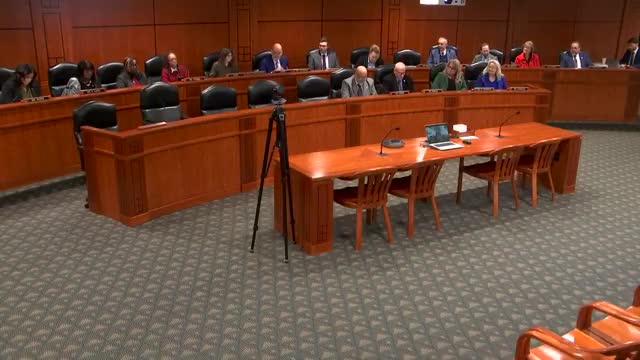House committee hears bill to remove sunset on interstate medical licensure compact
Get AI-powered insights, summaries, and transcripts
Subscribe
Summary
The House Health Policy Committee heard testimony on House Bill 4,032, which would remove the sunset on Michigan’s participation in the Interstate Medical Licensure Compact to maintain expedited physician licensing that supporters say helps rural and underserved areas; no committee vote was recorded.
The Michigan House Health Policy Committee on Wednesday heard testimony on House Bill 4,032, which would remove a statutory sunset on the state’s participation in the Interstate Medical Licensure Compact (IMLC), a multistate agreement that allows expedited licensure for qualified physicians.
Representative Linting, sponsor of House Bill 4,032, told the committee the bill “eliminates the sunset on the interstate medical licensure compact.” She said the compact allows “expedited licensure for qualified physicians” and argued that continuing Michigan’s participation helps address physician shortages and maintain access to care in rural communities.
Adam Carlson of the Hospital Association testified in support of the bill, saying continued participation is “particularly important” for rural areas and noting that the compact includes mechanisms for states to share disciplinary and investigatory information about providers. Dr. Moe Salome, chief medical officer for Trinity Health Michigan Medical Groups, joined by Zoom and described the compact as “vitally important for our ability to recruit high quality, talented individuals.” Salome said streamlined licensing helps hospitals bring clinicians into service more quickly in both rural and inner-city practices and that Trinity Health employs roughly 2,200 providers across its Michigan service area.
Representative Brenda Carter asked whether Michigan had experienced issues while participating in the compact. Carlson replied, “Not to our knowledge,” saying Michigan had been a compact participant for several years. Representative Morgan Foreman asked whether the state licensing agency had concerns; Carlson said his organization understood the Department of Licensing and Regulatory Affairs supported the compact and that the compact’s information-sharing provisions addressed licensing concerns.
The sponsor said House Bill 4,032 mirrors earlier legislation “previously passed by the house with a hundred and 5 votes in a past session.” The committee did not take a formal vote on the bill during the hearing; no committee action or referral was recorded in the transcript.
Why it matters: Supporters told the committee the compact shortens licensing lead times and can make recruitment easier for hospitals and practices serving rural and underserved communities. Witnesses emphasized the compact’s disciplinary-information sharing as a safeguard. The committee’s next steps on the bill were not stated.
Votes at this meeting: None recorded on House Bill 4,032.
Provenance: The committee introduced the bill and sponsor testimony in remarks beginning “it’s time to get to, the real business of the committee. And next, we will be taking up our first bill, 40 32. We have representative Linting here…” The record of witness testimony and committee questions about the compact continues through the committee’s closing remarks thanking the witness for her time.
